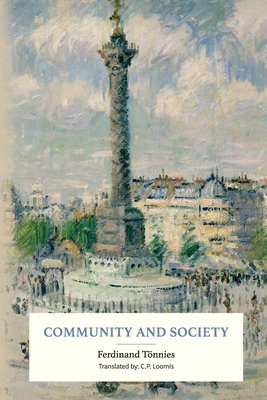Community and Society, or Gemeinschaft und Gesellschaft, is a study of the spectrum of prototypical social groups as identified by German sociologist Ferdinand Tönnies. First published in 1887, the work explores the relationship between community-based organizations and society-based organizations, and the human will that lies beneath each. Ferdinand Tönnies was born in Schleswig in 1855, then under Danish rule. The third son of a wealthy farmer, Tönnies studied at the universities of Strassburg, Jena, Bonn, Leipzig, and Berlin, before receiving a doctorate in philology (the study of languages) from the University of Tübingnen in 1877. The world around him was experiencing massive upheaval during Tönnies' early years. His own home of Schleswig changed hands from Danish to Prussian rule in 1864. Further, the Industrial Revolution radically altered the nature of city life, country life, and the relationships between the two. Within just 20 years, Prussia and Germany went from two-thirds rural and one-third urban to the complete reverse. By the time of his graduation, he had developed a new interest in political philosophy and sociology. Free from the need to earn a living by his family money, Tönnies wrote extensively for professional journals and political periodicals. He published over 900 works throughout his life. But his best-known contribution is Community and Society, which he began to write at just 21 years old. The work examines the intersections between the two disparate types of groups - Gemeinschaft, or community groups, and Gesellschaft, or social groups. Rather than identifying any one group as entirely Gemeinschaft or entirely Gesellschaft, Tönnies saw all social groups as existing along the spectrum, with community and society each on the opposite side. All social entities are either more Gemeinschaft-like or more Gesellschaft- like, but no group is 100% one or the other. The ties that bind Gemeinschaft-leaning communities include mutual bonds and feelings of togetherness. They exist more strongly in families, neighborhoods, and religious communities. On the other side, Gesellschaft societies are more impersonal, held together by the members to meet individual goals. These connections are often self-interested and may have monetary or political ends, such as corporations, states, or certain social clubs. Beneath each grouping lies the two types of human will, Wesenwille (essential or natural will) and Kürville (arbitrary will). In the express










